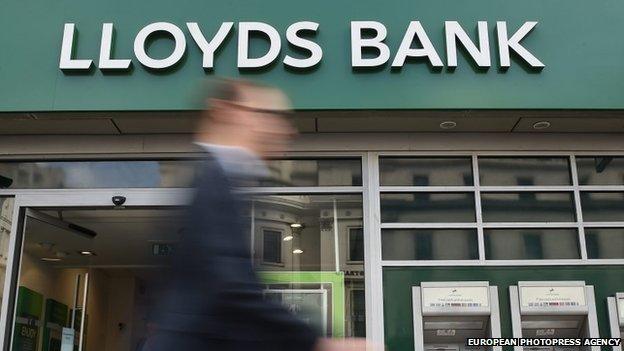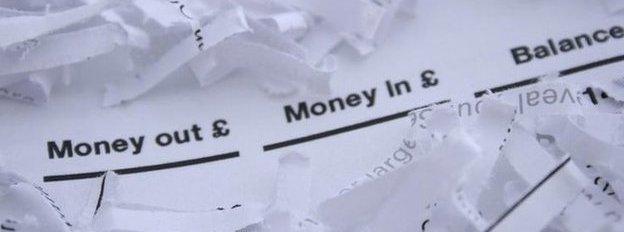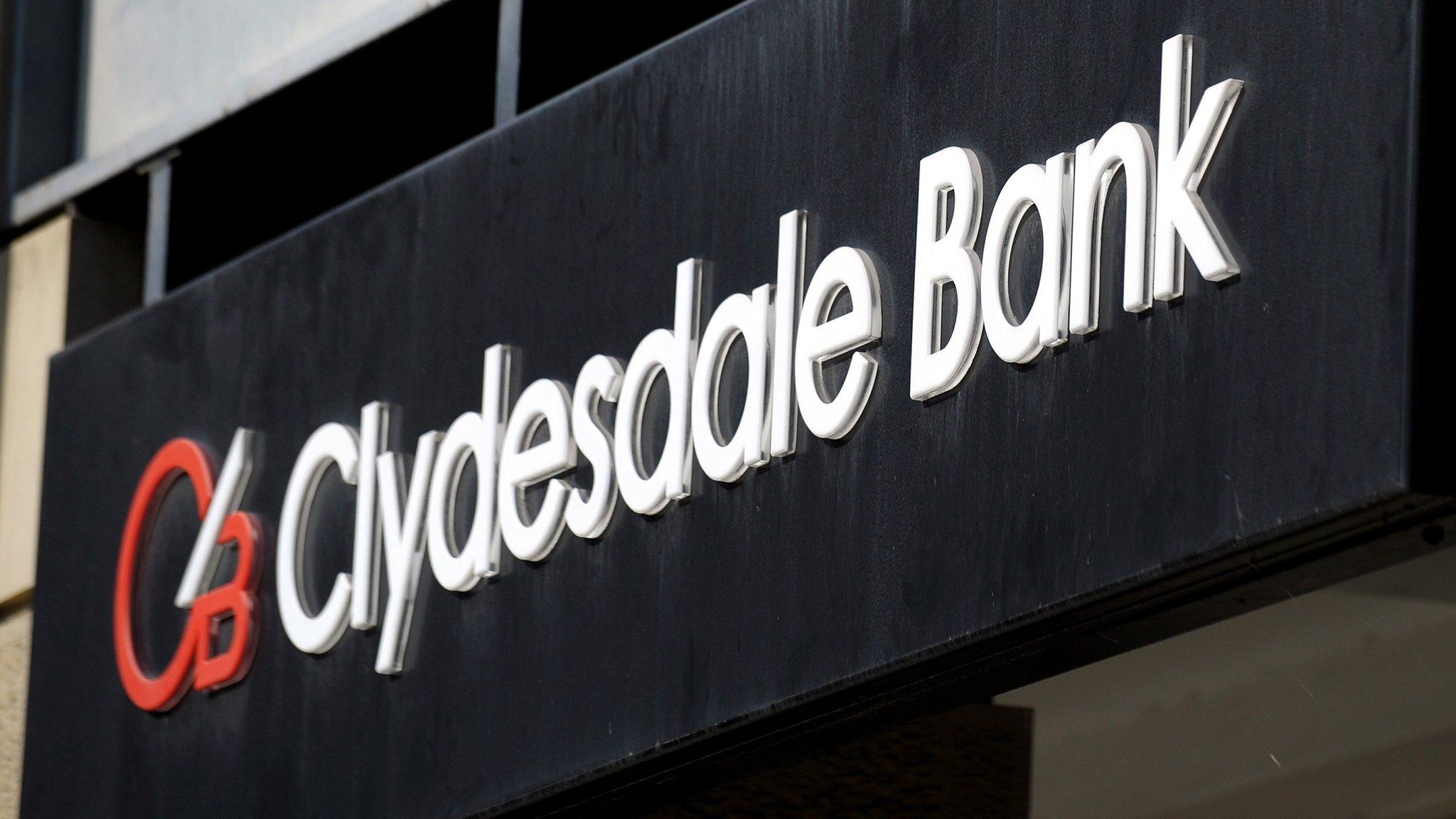Lloyds hit by record £117m fine over PPI handling
- Published

State-backed Lloyds Banking Group has been fined a record £117m by the City watchdog for mis-handling payment protection insurance (PPI) complaints.
It is the latest fine imposed on the bank, in which the taxpayer still holds a 19% stake.
It comes just two months after Clydesdale Bank was fined £20.7m for similar failings.
Earlier this week, the government said it would launch a Lloyds share sale to the public "in the next 12 months".
Last year, Lloyds was fined £218m by the Financial Conduct Authority (FCA) and US regulators for its part in the rigging of international banking lending rates.
The latest fine relates to the way in which Lloyds advised its own complaint handlers to deal with customer demands for PPI refunds.
The FCA said the bank dealt with 2.3 million PPI mis-selling complaints between March 2012 and May 2013. Lloyds rejected 37% of those complaints out of hand.
Call centre staff in March 2012 were advised that the bank's sales processes were compliant with regulations and that they were to deal with complaints on this basis unless otherwise informed.


What is payment protection insurance?
PPI is designed to help policyholders repay loans and credit card debts in the event of illness, accident, redundancy or death.
But it was mis-sold to millions of people. Policies often did not pay out when people needed help. Many sales staff did not explain PPI properly, for example to the self-employed or those with pre-existing medical conditions who would never be able to make a valid claim.
Compensation claims have led to an average payout for millions of people, averaging just under £3,000 each.

As a result, the FCA said "a significant number of customer complaints were unfairly rejected".
Perceived failures
The mis-handling of complaints first came to light as a result of an undercover investigation by journalists from the Times newspaper, although the FCA was already investigating the bank over perceived failures in PPI complaint handling.
Earlier this year, Lloyds said it had decided to freeze the release of shares in respect of deferred bonus awards from 2012 and 2013 for all members of its executive committee and for some other senior executives as a result of the FCA's investigation.
The bank said today that a total of £2.65m in bonuses would be forfeited by those executives. The BBC understands the Lloyds chief executive Antonio Horta-Osorio is set to lose around £350,000 from his bonus over the affair.

Analysis: Anthony Reuben, BBC head of statistics
The most recent figures we have from the Financial Conduct Authority, external show that from the beginning of 2011 up to the end of March this year, £19.2bn was paid out in PPI compensation.
The FCA says that figure comes from the 24 firms that received 96% of PPI complaints last year, but clearly a big chunk of that has come from Lloyds Banking Group, which has so far set aside (although not necessarily paid out) more than £12bn to cover PPI claims.
While monthly payouts are well down from the peak of £735m in May 2012, the firms between them are still consistently paying out £300m or £400m a month in the fifth year of this scandal.

In addition, Lloyds Banking Group is cutting £30m from its overall group bonus pot. One staff member, who contacted the BBC on condition of anonymity, said the bank was "unfairly punishing all staff for the behaviour of its executives".
The FCA said the bank had decided to review or automatically uphold approximately 1.2 million PPI complaints.
Lloyds has set aside a further £710m to cover any redress due to affected customers. In total the bank has set aside £12.025bn to refund customers for PPI mis-selling.
Customers do not need to take any action. Those who are affected and entitled to redress are being contacted directly. The FCA added that it was overseeing the remediation process.
Responding to the fine Mr Horta-Osorio said: "Whilst our intentions were right, we made mistakes in our handling of some PPI complaints. I am very sorry for this.
"We have been working hard with the FCA to ensure all customers receive appropriate redress. That process is now substantially complete. We remain fully committed to improving our operational procedures and ensuring we do the right thing for our customers."
- Published3 March 2015

- Published19 May 2015

- Published14 April 2015
